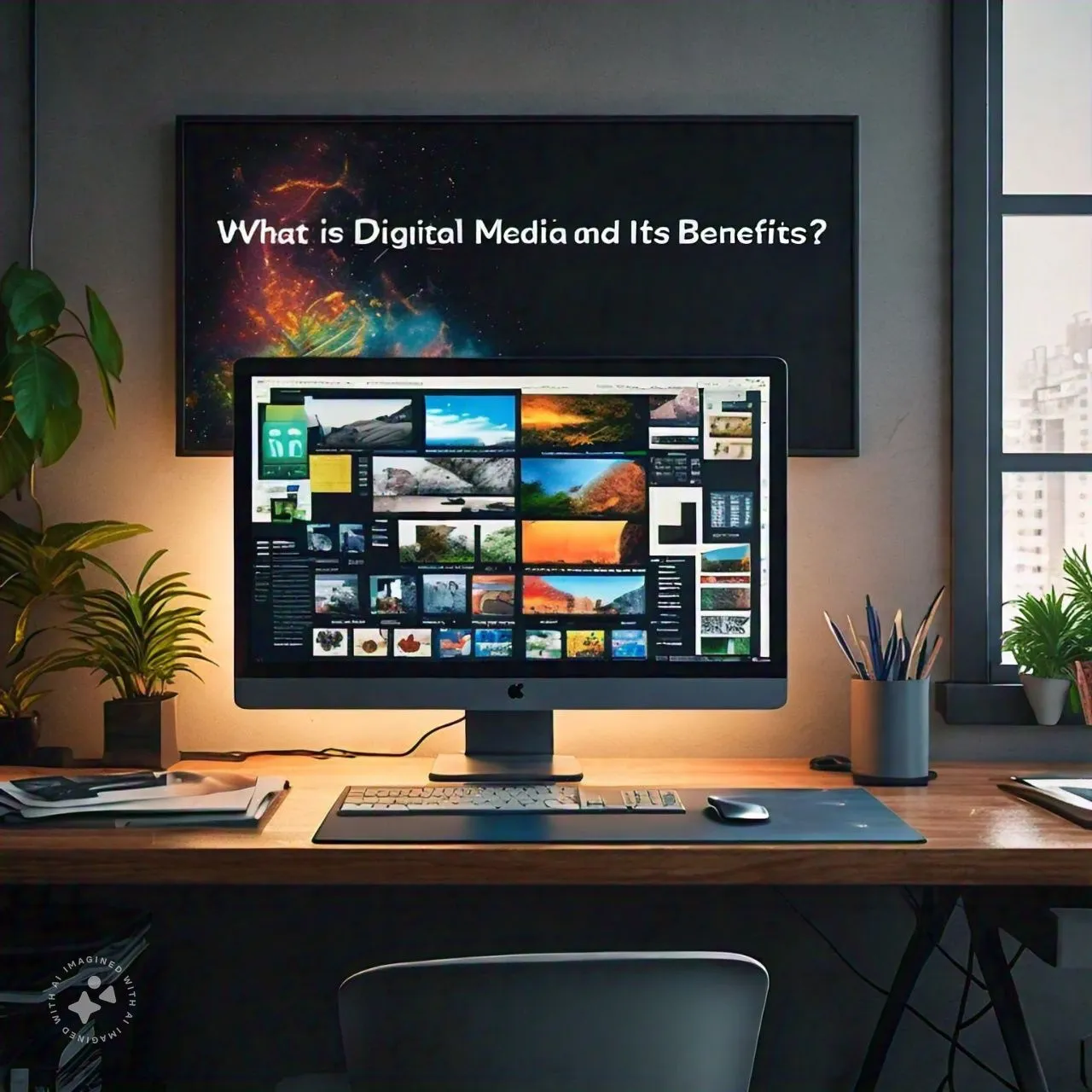Introduction
In the rapidly evolving world of technology, digital media stands at the forefront of communication and information dissemination. From social media platforms and websites to online videos and digital advertising, digital media encompasses all forms of media that use electronic devices for distribution. This article delves into what digital media is, its various forms, and the myriad benefits it brings to individuals, businesses, and society as a whole.
What is Digital Media?
Digital media refers to any content that is created, stored, and distributed electronically. It includes text, audio, video, and graphics that can be accessed via computers, smartphones, tablets, and other digital devices. Unlike traditional media, such as print newspapers or broadcast television, digital media is often interactive, allowing users to engage with content and with each other in real time.
Types of Digital Media:
Social Media:
Platforms like Facebook, Twitter, Instagram, and LinkedIn where users can create and share content.
Websites and Blogs:
Online pages that provide information, entertainment, or services.
Digital Advertising:
Online marketing through banners, pay-per-click ads, and social media ads.
Email:
Digital communication through electronic mail services.
Multimedia:
Combination of text, audio, images, animations, video, and interactive content.
E-books and Digital Publications:
Books and magazines available in digital format.
Online Videos and Podcasts:
Streaming content on platforms like YouTube, Vimeo, and various podcast services.
Benefits of Digital Media:
Enhanced Reach and Accessibility
Digital media transcends geographical boundaries, allowing content to reach a global audience. Whether it's a blog post, a video, or an advertisement, digital media can be accessed by anyone with an internet connection. This enhanced reach is invaluable for businesses looking to expand their market and for individuals seeking information or entertainment.
Cost-Effectiveness
Digital media can be more cost-effective than traditional media. Publishing content online eliminates the costs associated with printing and distribution. Additionally, digital advertising can be more affordable and targeted compared to traditional advertising methods.
Interactivity and Engagement
Digital media allows for a high level of interactivity. Users can comment, like, share, and engage with content, fostering a two-way communication channel between creators and audiences. This engagement helps build community and loyalty, making it a powerful tool for brands and influencers.
Real-Time Analytics and Feedback
Digital platforms provide real-time analytics, enabling content creators and marketers to track the performance of their media. Metrics such as views, clicks, shares, and conversions can be monitored and analyzed, allowing for data-driven decisions and strategies.
Personalization
Digital media allows for personalized content delivery. Algorithms can analyze user behavior and preferences to tailor content specifically for each user. This personalization enhances user experience and increases the likelihood of engagement and conversion.
Environmentally Friendly
Digital media reduces the need for paper, printing, and physical distribution, making it an environmentally friendly option. As more content goes digital, the environmental impact of media consumption decreases.
Versatility and Variety
Digital media supports various formats, including text, images, audio, and video. This versatility allows content creators to experiment with different media types and formats to effectively communicate their message.
Flexibility and Convenience
Users can access digital media anytime and anywhere, providing unparalleled convenience. Whether it's streaming a podcast during a commute or reading an article on a smartphone, digital media fits seamlessly into our busy lives.
FAQs about Digital Media:
What is digital media?
Digital media refers to any media that is encoded in a machine-readable format and distributed via electronic devices, including social media, websites, digital advertising, and more.
How does digital media benefit businesses?
Digital media helps businesses reach a global audience, engage with customers, analyze performance in real-time, and market products cost-effectively.
Can digital media be personalized?
Yes, digital media can be personalized using algorithms that analyze user behavior and preferences, delivering tailored content to enhance user experience.
Is digital media environmentally friendly?
Digital media is more environmentally friendly than traditional media as it reduces the need for paper and physical distribution.
Related to Digital-Media Internal or External Links
- How Does Digital Media Improve User Engagement?
- The Impact of Digital Media on Society
- Environmental Benefits of Digital Media
Conclusion
Digital media has transformed the way we live, work, and interact with the world. Its benefits, including accessibility, cost-effectiveness, interactivity, and educational opportunities, make it an integral part of modern life. As digital media continues to evolve, it will undoubtedly bring about further innovations and opportunities, shaping the future in unprecedented ways. Embracing digital media while addressing its challenges will be key to harnessing its full potential for personal and societal growth.
